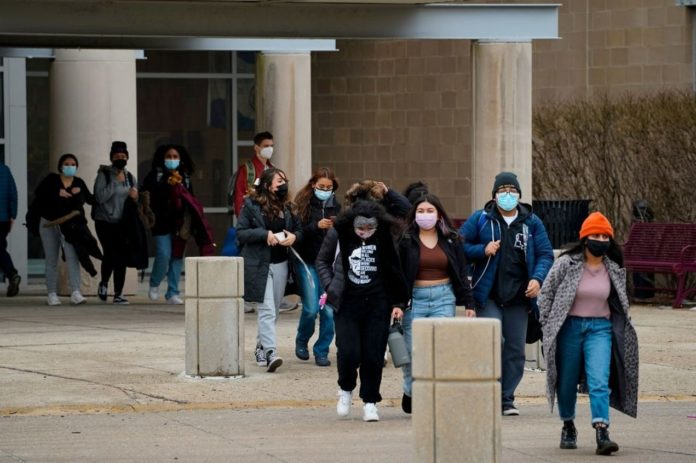From the early days of infection, the Coronavirus affects two very essential organs in the human body – what are they and what are the long-term health risks?
In its early stages, the SARS-CoV-2 virus can move to the heart and brain and live for months in various organs.
The SARS-CoV-2 coronavirus can travel to the heart and brain within days after infection, according to a recent study by the US National Institutes of Health (NIH). It can also live for months in multiple organs.
It’s possible that this virus can persist in people with chronic COVID because it can infect nearly every organ and spread to every system in the body, according to the study’s authors.
The work, which is being considered for publication in the journal Nature, is one of the most thorough examinations of how the virus reproduces in human cells and persists in the human body for long periods of time.
According to the authors, including Ziyad Al-Aly, Director of the Center for Clinical Epidemiology at the St. Veterans Health Care System in St. Louis, Missouri, USA, the study is significant because it explains why the virus can affect almost all systems and why long-term COVID can affect people who had asymptomatic disease or mild symptoms during the acute phase of COVID. 19.
Scientists at the National Institutes of Health in Maryland investigated tissues collected from 44 people who died after getting the disease during the first year of the pandemic in the United States.
According to the researchers, they identified SARS-CoV-2 RNA in numerous regions of the body — including the heart and brain — for up to 230 days after the commencement of symptoms.
Long-haul COVID, also known as “post-acute sequelae of SARS-CoV-2,” is characterized by the Centers for Disease Control and Prevention as a range of long-lasting symptoms.
“This is remarkably important work,” Ziyad Al-Aly, director of the clinical epidemiology center at the Veterans Affairs St. Louis Health Care System in Missouri, told Bloomberg.
“For a long time now, we have been scratching our heads and asking why long COVID seems to affect so many organ systems,” said Al-Aly, who has led separate studies into the long-term effects of the illness.
“This paper sheds some light, and may help explain why long COVID can occur even in people who had mild or asymptomatic acute disease,” he added.
Scientists have cited evidence both for and against the likelihood that the deadly bug infects cells outside the lungs and respiratory tract, Bloomberg noted.
“Our results collectively show that while the highest burden of SARS-CoV-2 is in the airways and lung, the virus can disseminate early during infection and infect cells throughout the entire body, including widely throughout the brain,” said the team, led by Daniel Chertow, who runs the NIH’s emerging pathogens section.
The findings “provides a warning about being blasé about mass infection in children and adults,” Raina MacIntyre, professor of global biosecurity at the University of New South Wales in Sydney, Australia, told Bloomberg.
“We don’t yet know what burden of chronic illness will result in years to come,” MacIntyre, who was not involved in the study, told the site.
“Will we see young-onset cardiac failure in survivors, or early onset dementia? These are unanswered questions which call for a precautionary public health approach to mitigation of the spread of this virus,” she added.
The NIH scientists speculated that lung infection could lead to an early “viremic” phase, in which the coronavirus is found in the bloodstream all over the body.
According to MacIntyre, the findings back up prior research that reveals the virus damages cardiac muscle cells directly and leaves survivors with cognitive problems.
The virus was found in the brains of all six patients who died more than a month after developing symptoms, as well as in most areas studied in the brains of five others, including one who died 230 days after developing symptoms, according to the outlet.
The focus on several brain areas, according to Al-Aly, is particularly beneficial.
He told Bloomberg, “It can help us understand the neurocognitive decline or ‘brain fog’ and other neuropsychiatric manifestations of long Covid.”
“We need to start thinking of SARS-CoV-2 as a systemic virus that may clear in some people, but in others may persist for weeks or months and produce long Covid — a multifaceted systemic disorder,” he continued.
Image Credit: Getty
You were reading: Organs COVID-19 infects as soon as it “enters” body – What diseases it triggers
